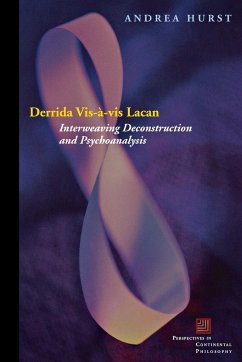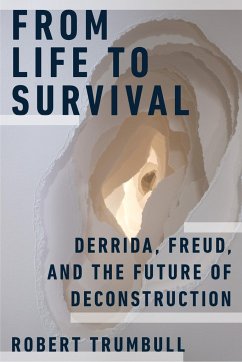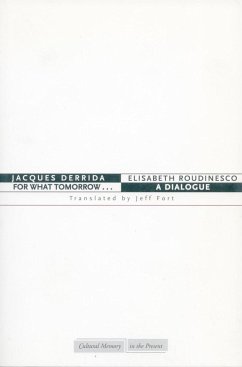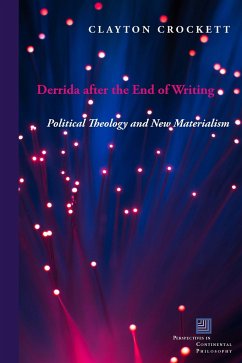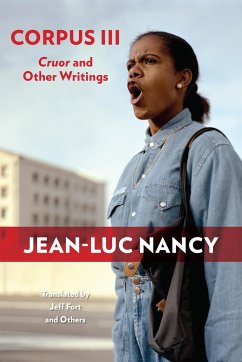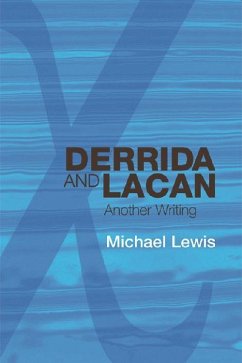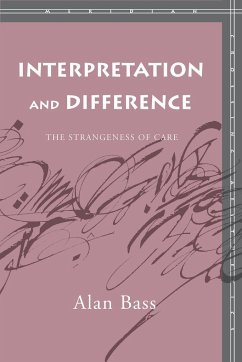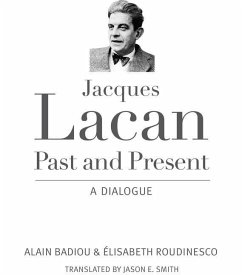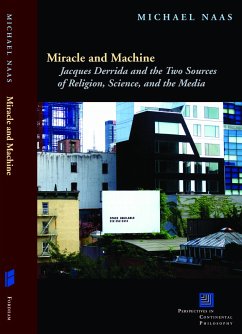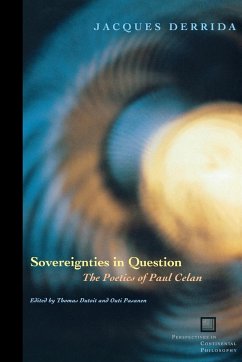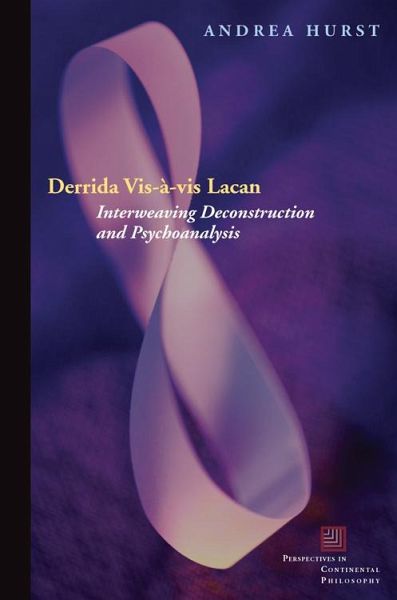
Derrida Vis-À-VIS Lacan
Interweaving Deconstruction and Psychoanalysis
Versandkostenfrei!
Versandfertig in über 4 Wochen
102,99 €
inkl. MwSt.

PAYBACK Punkte
51 °P sammeln!
Derrida and Lacan have long been viewed as proponents of two opposing schools of thought. This book argues, however, that the logical structure underpinning Lacanian psychoanalytic theory is a complex, paradoxical relationality that corresponds to Derrida's plural logic of the aporia.Andrea Hurst begins by linking this logic to a strand of thinking (in which Freud plays a part) that unsettles philosophy's transcendental tradition. She then shows that Derrida is just as serious and careful a reader ofFreud's texts as Lacan. Interweaving the two thinkers, she argues that the Lacanian Real is ano...
Derrida and Lacan have long been viewed as proponents of two opposing schools of thought. This book argues, however, that the logical structure underpinning Lacanian psychoanalytic theory is a complex, paradoxical relationality that corresponds to Derrida's plural logic of the aporia.Andrea Hurst begins by linking this logic to a strand of thinking (in which Freud plays a part) that unsettles philosophy's transcendental tradition. She then shows that Derrida is just as serious and careful a reader ofFreud's texts as Lacan. Interweaving the two thinkers, she argues that the Lacanian Real is another name for Derrida's diffrance and shows how Derrida's writings on Heidegger and Nietzsche embody an attitude towardsexual difference and feminine sexuality that matches Lacanian insights.Attempting to heal a long-standing divide between Derrideans and Lacanians, she brings out a deep theoretical accord between thinkers who both recognize the power of psychoanalysis to address contemporary politicaland ethical issues.



